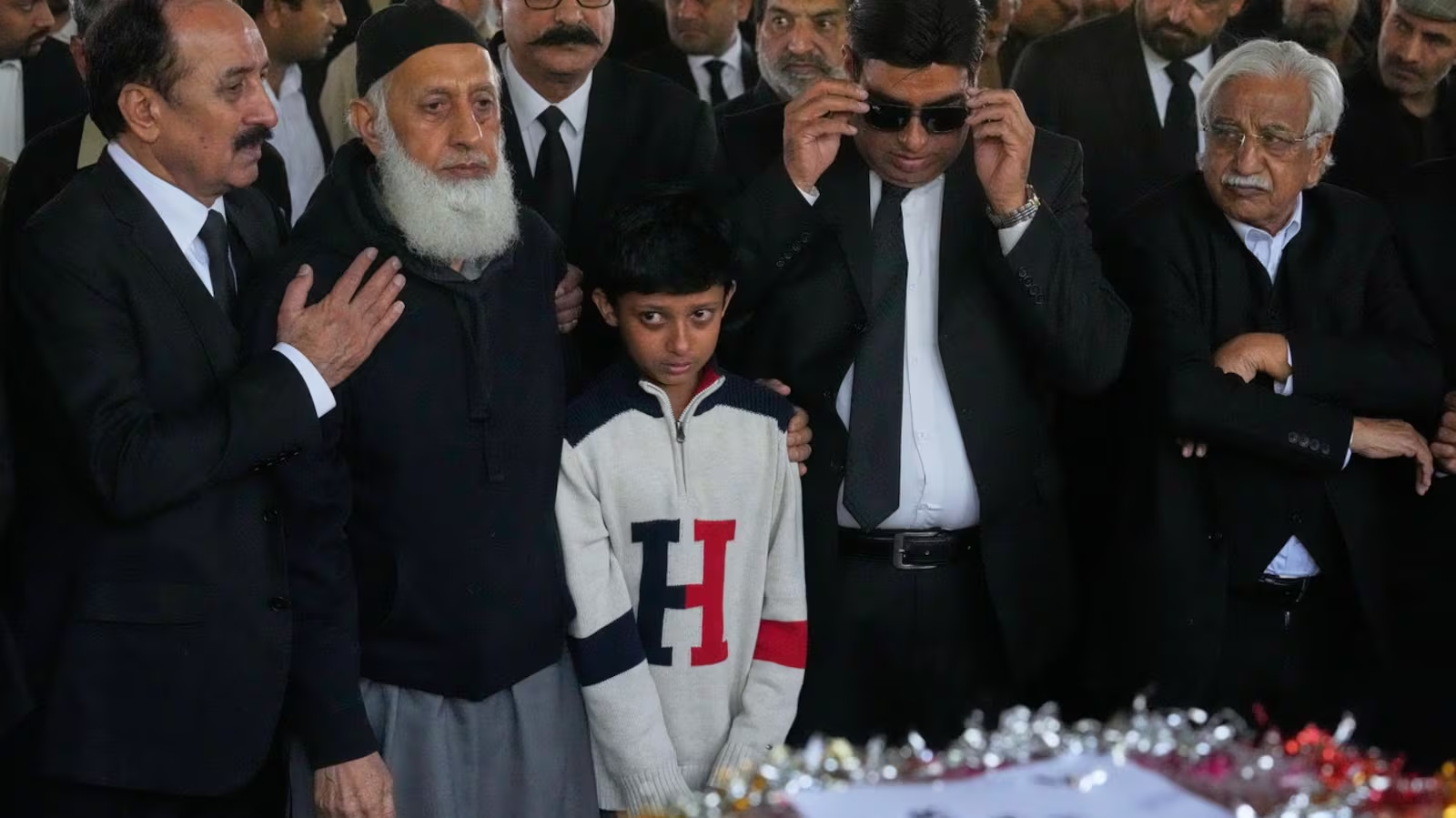Pakistan has launched a full-scale investigation into the suicide bombing that killed 12 people and wounded 27 outside a district court in Islamabad, an attack that has shaken the capital and intensified concerns about rising militancy. A day after the blast, Prime Minister Shehbaz Sharif addressed parliament, renewing a call for dialogue with Afghanistan’s Taliban government—just a week after negotiations between the two sides fell apart in Istanbul, putting a fragile cease-fire at risk.
Sharif expressed condolences for the victims and said peace in the region was essential for both countries. But he also noted that recent attacks carried “Afghan footprints,” urging Kabul to deliver on past commitments to contain extremist groups. “Let us sit with sincere hearts, rein in terrorism, and work together for peace and prosperity,” he said. Kabul has not yet responded publicly to the overture.
The attack has once again exposed Pakistan’s vulnerability to militant operations, even in the normally secure capital. The bombing struck the court compound on the city’s outskirts, leaving behind scenes of devastation that forensic teams were still combing through on Wednesday. Families wept as they collected bodies from an Islamabad hospital, and funeral prayers were held for several of the victims. Most of the wounded have already been released after treatment.
Interior Minister Mohsin Naqvi blamed the attack on “Indian-backed elements and Afghan Taliban proxies” linked to the Pakistani Taliban—but he presented no evidence, adding that authorities were exploring all angles. India and the Taliban administration in Kabul have dismissed previous similar allegations, and both countries have recently strengthened contact despite lacking formal diplomatic ties.
Complicating matters further, competing claims of responsibility emerged. A faction of Jamaat-ul-Ahrar initially said it carried out the bombing, but a commander later contradicted the statement. Meanwhile, the main Pakistani Taliban group, Tehrik-e-Taliban Pakistan (TTP), denied involvement. Pakistan has long accused the Afghan Taliban of sheltering TTP leaders, a claim Taliban officials reject.
The bombing drew swift condemnation from around the world as Pakistan grapples with a resurgence of militant violence, tense relations with Afghanistan, and mounting domestic political pressure. Defense Minister Khawaja Asif told reporters the blast was “a message” meant to show militants’ ability to strike deep within the country. When asked whether Pakistan might retaliate militarily by targeting TTP hideouts in Afghanistan, he said such action “cannot be ruled out.”
The Islamabad blast was not the only attack this week. On Monday night, four militants stormed an army-run cadet college in the northwestern city of Wana. A suicide car bomber rammed the school gate, triggering an overnight standoff in which troops evacuated more than 600 cadets, teachers, and staff. All four attackers were killed, and officials say the militants may have intended to replicate the horrific 2014 Peshawar school massacre that killed 154 people—mostly children. No group has claimed responsibility.
As the nation grieves, Pakistan’s political landscape also shifted. Parliament passed a bill elevating Army Chief Field Marshal Asim Munir to a newly created role: chief of defence forces. The move sparked opposition criticism that it could weaken democratic institutions, though the government insists the new post is meant to improve coordination among the military branches. The bill now awaits a formal signature from President Asif Ali Zardari.
Meanwhile, tensions with Afghanistan continue to simmer. Kabul has accused Islamabad of carrying out drone strikes on Oct. 9 that killed several people in the Afghan capital, leading to cross-border clashes that left dozens dead before a Qatar-brokered cease-fire. Follow-up talks in Istanbul ended without progress after Afghanistan refused to provide written guarantees that militants would not use Afghan territory to attack Pakistan. The TTP, emboldened since the Taliban regained power in 2021, remains one of Pakistan’s most persistent security threats.
Amid these tensions, India and Afghanistan have strengthened their own relationship. Senior diplomats from both sides met in New Delhi in September, and India recently announced that its technical mission in Kabul will be upgraded to a full embassy—one of the most significant diplomatic moves since the Taliban takeover.
As families bury their dead in Islamabad, the bombing has intensified pressure on Pakistan’s government to address the growing militant threat while navigating delicate regional dynamics. Whether Sharif’s renewed offer of talks will produce results—or whether the violence pushes the region closer to another escalation—remains uncertain.

